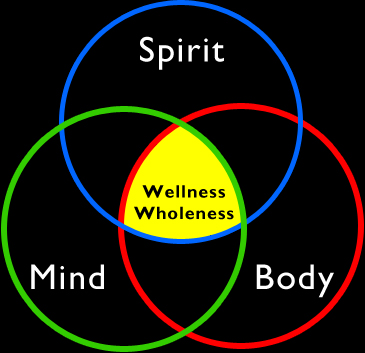In an age marked by a palpable yearning for deeper significance, the Bahá’í teachings illuminate a path toward understanding the intricate relationship between the corporeal and the spiritual. This exploration invites individuals to transcend mere physical existence, embracing their essence as spirit-centered beings. In this discourse, we delve into the Bahá’í perspective that eschews reductionist views of humanity, advocating instead for a holistic vision rooted in spiritual realities.
The concept of being “more than a body” serves as a fulcrum upon which the entirety of Bahá’í philosophy pivots. It is imperative to comprehend that the spirit, in Bahá’í belief, is not merely an ethereal notion but rather a vital and pulsating part of our very identity. As one reflects upon the metaphor of the seed, we envision a being that is encased in the physical form—much like the seed shells that protect tender growth within. Just as a seed must eventually break free of its constraints to become a flourishing plant, so too must individuals disengage from the confines of materialism and embrace the spirit to cultivate their fullest potential.
At the core of this spiritual awakening is the Bahá’í teaching that the human being is essentially a reflection of the Divine. This perspective posits that the spirit possesses an innate nobility, fashioned from the same divine essence that permeates the cosmos. Thus, each person is endowed with a unique capacity to express this divinity through virtues such as love, justice, and compassion. To embrace one’s identity as a spirit-centered being is to recognize and manifest these attributes, thereby facilitating a transformative process not just for oneself, but for the entire community.
One may discern that becoming aware of one’s spiritual identity necessitates a profound shift in consciousness. In a world often overshadowed by material concerns—fame, wealth, and physical beauty—the Bahá’í teachings advocate for a reinvigoration of the spiritual self. The external world presents continual distractions, yet nurturing the soul calls for vigilant introspection and unwavering faith. As one sets forth on this inner journey, it becomes apparent that the true measure of existence lies not in ephemeral pleasures, but rather in the cultivation of enduring qualities that resonate with the essence of the spirit.
Furthermore, the Bahá’í teachings elucidate the significance of service to humanity as a conduit for spiritual growth. Engaging in altruistic endeavors facilitates an expansive understanding of interconnectedness, serving to fortify the spirit in its quest for fulfillment. The act of selfless service is akin to a river that nourishes the surrounding landscape; it enriches not only the giver but also the receiver. This cyclic interaction propels an individual toward higher realms of consciousness, enhancing one’s ability to recognize shared humanity and divine purpose.
In realizing the essence of being spirit-centered, the concept of prayer and meditation emerges as an indispensable tool for introspection. These sacred practices allow individuals to transcend the tumult of daily life and connect profoundly with the Divine. Such moments of spiritual communion serve to reinforce one’s identity beyond mere physicality; they present opportunities to immerse the self in divine attributes, inviting inspiration and a deeper understanding of one’s place within the cosmos.
This spiritual journey reflects the intricate balance between the material and the spiritual, wherein each element possesses its own unique role. While the physical body is a temporary vessel, the spirit is eternal, and understanding this transient nature fosters a sense of detachment from the superficial. As the Bahá’í teachings profess, the soul is unbounded by earthly constraints, soaring to ever-greater heights as it learns to navigate the terrain of existence with grace and dignity.
Moreover, the appeal of the Bahá’í understanding of spirit-centered living lies in its universality. It transcends cultural boundaries, uniting diverse populations under a shared commitment to explore the profundities of existence. By promoting a vision that celebrates the innate worth of every individual, the Bahá’í teachings encourage an appreciation for the myriad expressions of humanity, advocating for peace and unity amid diversity. The notion that each individual carries within them a fragment of the divine invites a radical reconceptualization of social interactions, urging us to engage with one another as fellow seekers of truth.
As we contemplate the teachings of the Bahá’í Faith, it becomes increasingly clear that the evolution of humanity rests upon a collective acknowledgment of our spiritual lineage. Living as spirit-centered beings necessitates an unwavering commitment to personal growth, coupled with the profound recognition of interconnectedness that binds us all. It is within this framework that ethical conduct, justice, and compassion gain paramount importance, shaping not just our individual lives, but the very fabric of society.
In conclusion, the Bahá’í teachings encapsulate a vision of humanity that is deeply empowering, urging each individual to embrace their identity as more than mere vessels of flesh. Rather, we are spirit-centered beings—capable of transcending material limitations and embarking on a journey that resonates with the divine purpose. This intricate interplay between spirit and body is not merely an academic discourse—it is a clarion call to awaken the heart and embody the virtues that connect us to each other and to the Divine. In living fully as spirit-centered beings, we open the door to boundless possibilities, both for ourselves and for a world yearning for spiritual nurturance.
